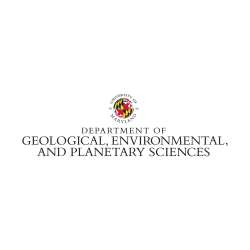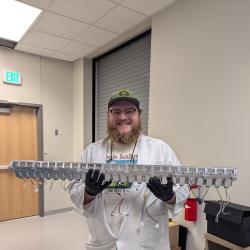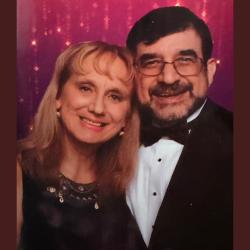Science for All
CMNS is doing its part to increase the scientific literacy of students across the university through two series of courses designed to engage students who are not majoring in the sciences or mathematics. “Every graduate of this university will have to make decisions of significance in their lives that connect to science-related issues such as climate, health, energy, the environment and genetic engineering,” explains CMNS Associate Dean Robert Infantino. “This college has embraced the need to explore relevant topics in depth, beyond the traditional survey courses, for non-majors.”
The Marquee Courses in Science and Technology were developed in response to the national need for a greater appreciation and understanding of how science, technology, engineering and mathematics (STEM) provide solutions to the world’s challenges. The courses are taught by accomplished research faculty members, who meet regularly with Donna Hamilton, associate provost for academic affairs and dean for undergraduate studies, to discuss course development and new teaching techniques. “It was a great concern to faculty that we had many brilliant students in other majors who will make science-related decisions in their jobs, and we were not offering courses to adequately prepare them,” says Hamilton. “Through these courses, students explore science up close, not at an arm’s distance.”
Physics Professor Jordan Goodman, who has been teaching Marquee courses since their inception in 2008, describes the concept. “We want students to see how scientists search for answers: how they collect data, build models, and make scientific judgments. These courses are mechanisms to teach how science attacks the world’s problems.” In Physics for Decison-makers: The Global Energy Crisis, which Goodman teaches with Physics Professor and Co-director of the Joint Quantum Institute Steve Rolston, the issues of global warming, shrinking oil supplies, biofuels and nuclear power are explored as students consider how they would make decisions to ultimately determine the survival of the planet. “These kinds of courses aim to provide students with the tools and confidence to critically evaluate information with a scientific basis,” says Rolston.
Evolution of Life and Environment on Planet Earth, taught by Geology Professors Alan Kaufman and James Farquhar, explores how life has shaped the Earth’s physical environments and analyzes evidence for the origins and diversification of life and its impact on Earth environments. “We begin by giving students a sense of space and time. For instance, we take the class outside and build a model of the solar system that stretches across campus, using a bouncing basketball as the sun and peppercorns and acorns as the planets,” says Kaufman. Class activities, or simulations, capture the basic elements of processes like the greenhouse effect, radioactivity and Earth system feedbacks. “We get students to generate data that we can use to analyze the process and uncertainties in the simulations,” says Farquhar. The course also includes field trips to the Smithsonian Institution, as well as to Calvert Cliffs to hunt for fossil shark teeth, and to Northern Virginia to view glacial deposits.
Pollinators in Crisis, taught by Associate Professor of Entomology David Hawthorne, examines why the ecosystem is losing pollinators—required for the growth of some 30 percent of our food—to environmental stress and disease. Students learn about insects, the interaction of organisms in complex ecosystems and the human–nature interface. Hawthorne draws largely from his own research, which emphasizes the interaction of genetic and ecological forces and the evolutionary consequences. “Active learning and group projects help students develop an array of important skills while learning about where our food comes from and how ecosystem services support our quality of life,” says Hawthorne.
The influence of weather and climate on transportation, commerce, agriculture and nearly every aspect of life is explored in Weather and Climate taught by Atmospheric and Oceanic Science Professor Robert D. Hudson, who formerly managed the Atmospheric Chemistry and Dynamics Branch at NASA Goddard Space Flight Center. Rather than submit individual assignments, students complete three group projects. “As teams, students prepare poster presentations on issues that link weather and climate to their everyday activities, such as the impact of climate forecasting on the commodities market,” explains Hudson.
Revisiting General Education Courses
Based on the success of the Marquee courses, the I-Series courses were launched as a pilot program in Spring 2010 and will become a centerpiece of the university’s new General Education Program, which begins in Fall 2012. “We wanted to move away from broad survey courses and give students the experience of delving into creative topics that are meaningful to them and society,” says Joelle Presson, assistant dean for undergraduate academic programs.
In Race, Genomics and Human Evolutionary History, Presson takes students on a scientific journey from the fossil record, tracing the lineage of modern humans through DNA. The course covers the fundamental concepts of chemical, cellular, genetic, molecular and evolutionary biology required to understand genetic diversity. “This course raises questions about the idea of race and provides a scientific way to understand human diversity,” says Presson, who challenges students to justify scientific conclusions with available data.
Astronomy Senior Lecturer Melissa Hayes-Gehrke begins Collisions in Space: The Threat of Asteroid Impacts with an overview of the solar system, gravity and the basics of astronomy, “then we move to study asteroids —including how we could defend our country from them and their role in international politics.” She uses team assignments to give entering students needed experience with working in groups and sharing perspectives. “Students design a spacecraft to accomplish a specific mission within a given budget,” Hayes-Gehrke explains. “In their last project, teams present written arguments on ethical issues and other teams debate the argument. When they finish this course, students know more about asteroids than 99 percent of the population.”







